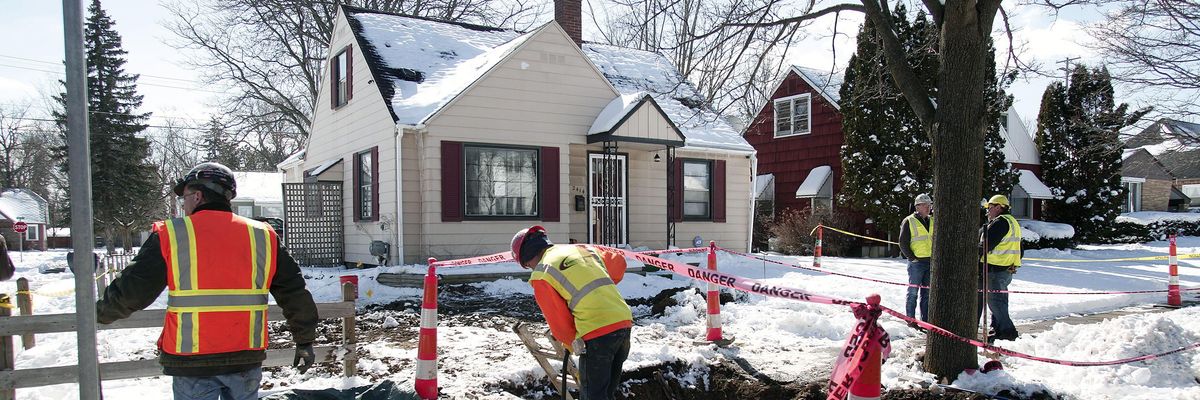Flint, Michigan residents and advocacy groups said Wednesday that they are returning to court for the fifth time in nearly six years to ensure the city removes the lead pipes which contributed to the community's devastating water crisis that began in 2014.
The city failed to meet a court-ordered deadline of September 30 for excavating and replacing all the lead service lines, which officials had agreed to do under a 2017 legal settlement. The city has been granted several extensions to complete the work.
"The people of Flint won't tolerate any more broken promises from the city, which is under a federal court order to get the lead pipes out of the ground and somehow still can't get the job done."
"The people of Flint won't tolerate any more broken promises from the city, which is under a federal court order to get the lead pipes out of the ground and somehow still can't get the job done," said Melissa Mays, operations manager for the grassroots group Flint Rising, in a statement. "The city's mismanagement is adding insult to the injury we've endured for years. Flint residents are fighters and we intend to stop at nothing short of securing safe water for our entire community."
Mays was one of the plaintiffs in the federal drinking water case that arose from the lead crisis in the city, where the majority of residents are Black and about 40% live in poverty.
To save money, city officials decided in 2013 to temporarily pump drinking water from the Flint River, failing to treat the water. Nearly 9,000 children were supplied lead-contaminated water for 18 months and the crisis spurred residents including Mays to action as the community called on the Environmental Protection Agency to take immediate emergency action. After the EPA failed to take action, the residents sued the city and state officials, resulting in the 2017 settlement.
By the end of 2021, lead pipes going to roughly 400 Flint homes still needed to be excavated and officials still needed to complete outreach to 1,400 households.
According to the Natural Resources Defense Council (NRDC), Lakeshore Global Corporation, which was awarded a $17.8 million contract to remove the lead pipes, did not resume the work until September, weeks before the latest deadline.
Democratic Flint Mayor Sheldon Neeley said as the latest deadline passed that 95% of service line excavations had been completed, but advocates said Wednesday that they have lost patience with the city.
On October 28, the city announced that the EPA had granted a $100 million funding extension for one year to complete the replacement of lead pipes. The city's contracts now stipulate that the work must be finished by the end of 2023.
"The city of Flint did not manage to replace even a single lead pipe this year until September and is unable to tell us which homes and how many still need lawns, driveways, and sidewalks restored from the excavation work," said Pastor Allen C. Overton of Concerned Pastors for Social Action. "This is unacceptable. Residents have no option but to ask the federal court to hold the city accountable and push this work over the finish line."




